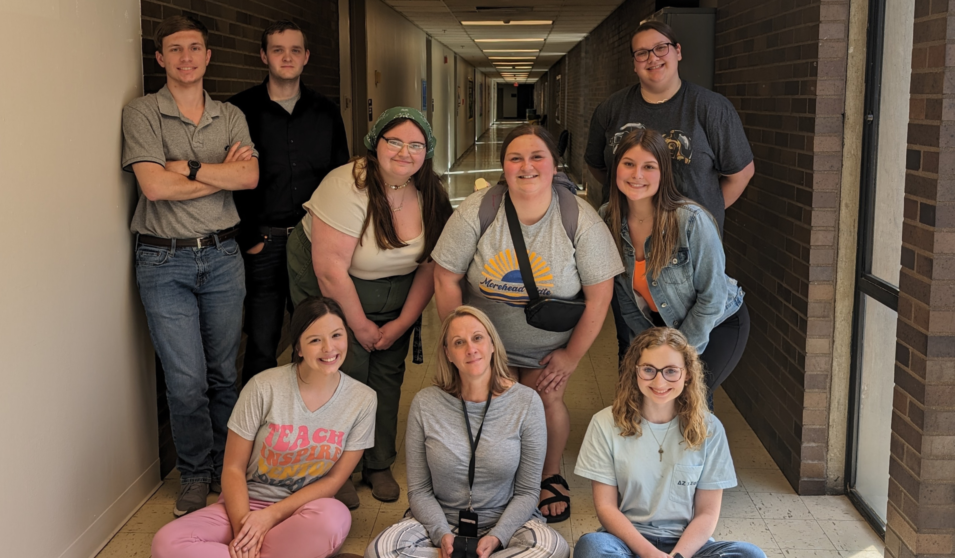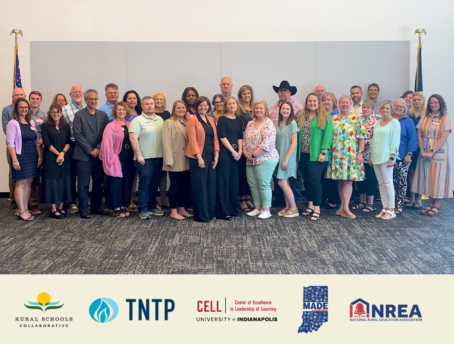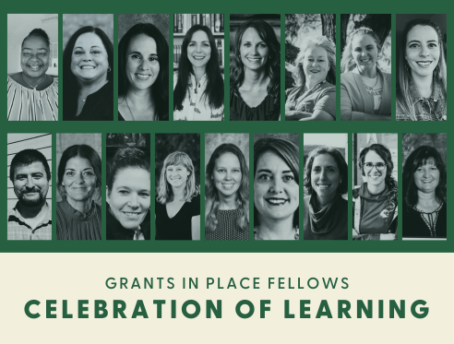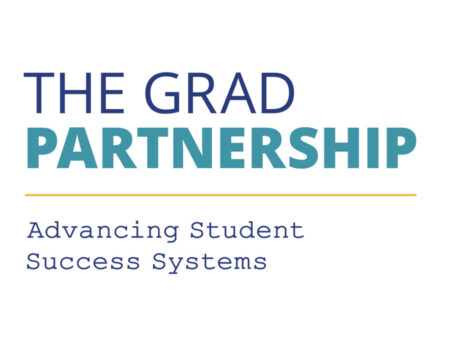Supporting the development of programs that intentionally recruit and prepare rural educators, or Rural Teacher Corps, stands as a core pillar in Rural Schools Collaborative’s work. Amongst RSC staff, board, and partners, a belief persists that by supporting rural educators devoted to each of our respective places, together we can strengthen rural communities. At the heart of those efforts are dedicated education leaders and the teacher-candidates, determined to learn their craft and return to uplift the places they love. Rural Teacher Corps were designed for places like the hickory-draped hills and hidden hollers of Lewis, Letcher, Powell, Magoffin, and a dozen-plus more rural Appalachian counties, way out where the church choirs belt to the pines.
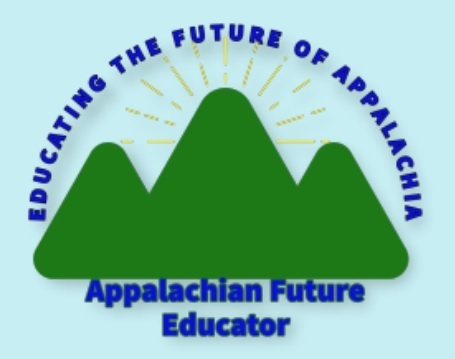
It was with both education preparation program leaders and students in mind that Rural Schools Collaborative launched the Catalyst Initiative Grant, which provided modest planning support for rural-supporting organizations to launch their own Rural Teacher Corps. In 2021, the first year of the Catalyst Initiative, Morehead State University’s Ernst & Sara Lane Volgenau College of Education received the planning grant, launching the aptly-named Appalachian Future Educators (AFE) program. Morehead State University is a regional, public university of about 8,000 undergraduate and graduate students that proudly serves Kentucky and surrounding Appalachia, offering diverse programming and opportunities for all students. Three years later, the AFE is thriving, in no small part due to the dedication and leadership of professors and students alike.
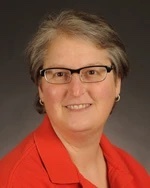
Morehead State University’s Dr. April Miller, RSC Appalachia Regional Hub lead and Dean of MSU’s College of Education, stewards the AFE program, which was previously supported by Assistant Professor Dr. Becky Roach. Becky, who ran AFE’s day-to-day operations through spring of 2024, oversaw AFE's growth; the program is now up to 30 scholars, who receive a $1,000 scholarship, and an additional 10 general members who also participate in the events. The heartbeat of the program are the student-leader officers, who engage in outreach, make decisions, and engage in public service locally. “They have taken the initiative to propose educational programs, create their committees, run their own elections, and engage in recruitment” describes Becky.
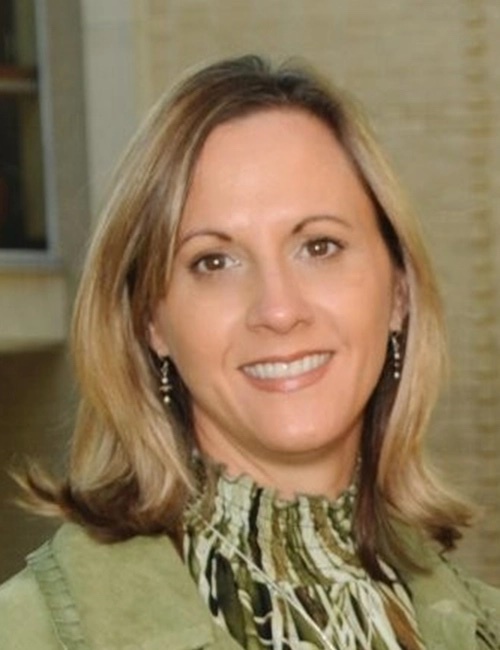
The Appalachian Future Educators program recruits incoming students from 22 counties within Morehead State’s eastern Kentucky service area, with the hopes that a cohort-model of learning and a special intention towards place will empower them to return to their home communities and teach. The students themselves are highly motivated to return, both to give back to communities that shaped them and to offer future students experiences that they never had. Kaylee Hayden, 2023 AFE Cohort Representative and a native of Floyd County, is majoring in P-12 Art Education and has a passionate for providing accessible art opportunities for all students, knowing how important it was for her growing up:
Another teacher-candidate, AFE Social Media Chair and previous Vice-President Madison Woosley of Powell County, is motivated to make sure that all children are appropriately challenged, no matter their backgrounds. Madison hopes “to set rigorous standards for them where they're making growth, not just ‘oh, you know, they can't do it’, because in our rural areas it is it's more lower socio-economic, with students being raised by mamaw or papaw, or they're working back and forth between food stamps and stuff, but it's easy for [teachers] to say ‘they can’t do it.’ But you can't do that - I don't want to be one of those teachers that just says ‘oh, well, they can't,’ because I know that all my students can.”
Becky, who teaches social studies methods in addition to leading AFE, teaches her future educators to love all of their students, but never to patronize them by setting low standards and just ‘blessing their little hearts.’
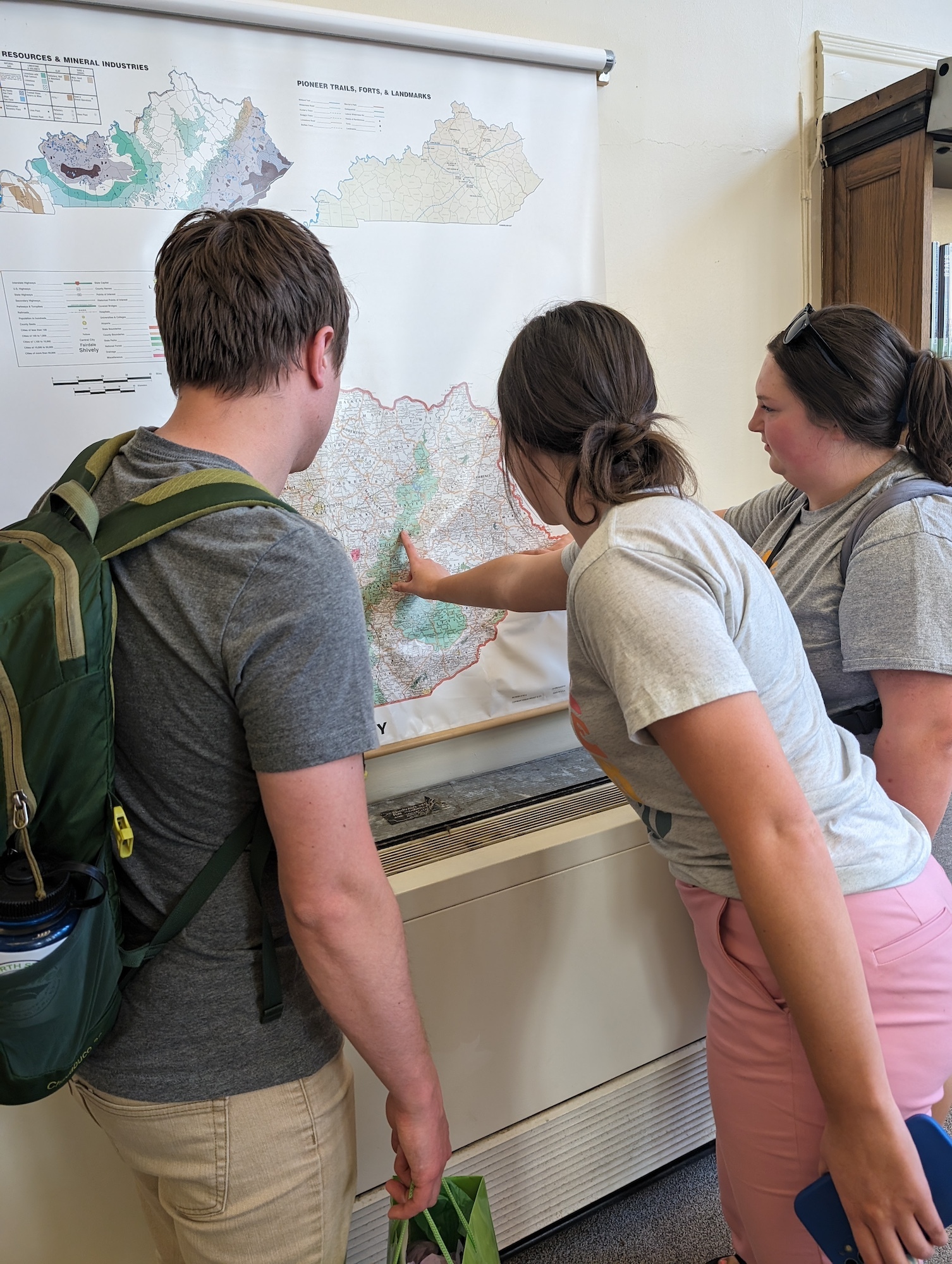
Beth Warner, who served for two years as AFE President and hails from Pike County, feels similarly, refusing to accept that students should be judged or treated differently based upon their family context or economic status. “I feel like a lot of our students . . . are discredited because of who their parents are or what [teachers] know about their brother or their sister . . . And I want to be a teacher who is ready to give 100% to every one of our students, both the kids who come in with holes in their clothes every day and the kids who have that perfect little Lululemon or whatever. And I feel like we need more teachers like that because some students are being failed on a daily basis because of their background.” Caroline Watkins, of Rowan County and current AFE President, agrees: “I want to go into teaching so that I can help be one of those teachers that really inspires my students and I want to help them do well,” noting that she didn’t always experience that same belief growing up.
Each Appalachian Future Educator not only has close ties to their hometowns, but many carry a burning passion for bringing healing and help to struggling communities. Jaylee Collier, of Letcher County and current AFE Vice-President, found a love for learning through Morehead State’s inquiry-based teaching style and can’t wait to bring that same engaging pedagogy back home in her future STEM classroom. Jaylee reflects that “I can bring these new ideas in, so students can actually get something out of the classroom that I never did. . . I want to have the students reach conceptual understanding, not just test taking. So that's my big deal. . . I'm a holler kid. I love being from the holler, but that doesn't make me less intelligent than anyone from the city. So I want to be that advocate”
The Appalachian Future Educators Rural Teacher Corps is a cohort model, where students take classes and attend meetings together, and receive one-to-one mentorship from an MSU faculty or staff member, or even a trusted and respected teacher working in their hometowns. They are also assigned a big brother or sister from AFE upperclassmen. AFE scholars, participate in social and service activities, and through shared experience and united future goals end up becoming much more than classmates. “You just feel comfortable; you learn to grow and love these people and you feel comfortable. It's so great that we have an organization we can come together and do something with that friendship” describes AFE Treasurer Hailey Eachus, of Lewis County. “AFE is like my second family,” adds Kaylee.
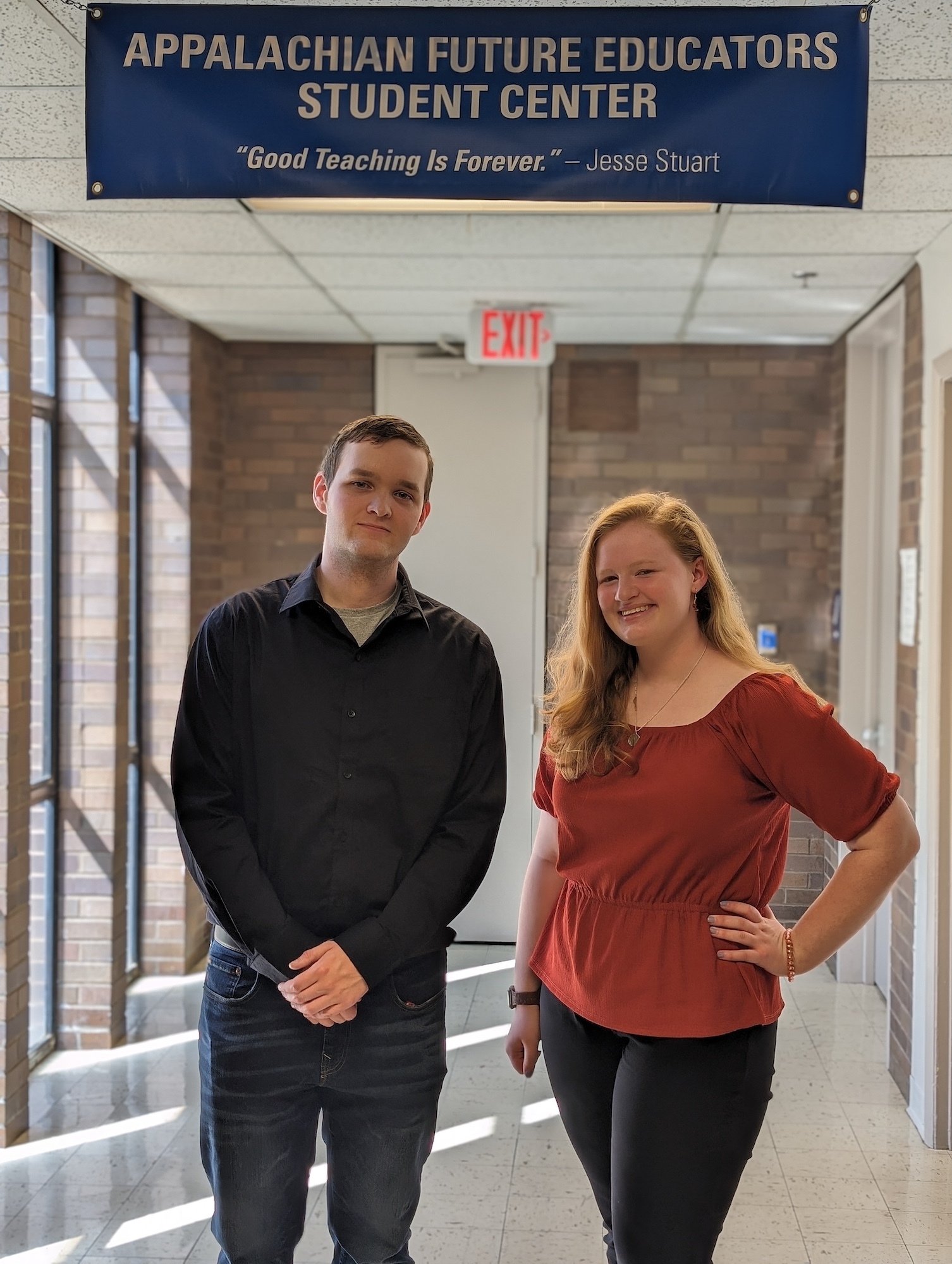
The shared purpose and community created on campus in the rolling hills of Morehead mirrors and enriches the AFE’s commitment to bringing people together as teacher leaders in their respective rural counties. Ryan Holderby, of Magoffin County and an aspiring social studies and math teacher, describes how important it is for students to have teachers who are knowledgeable, understanding and empathetic of local contexts: “I want kids to know the history of this region. I grew up in what is called a holler. And I know what it's like [in eastern Kentucky] . . . Both of my parents were from impoverished households. So I think that's a thing a teacher needs to know, what their students are going through– but that's also one of the things I really like about little schools. It’s the connection.”
Discussing and confronting the challenges facing rural communities across Appalachia, concentrated in eastern Kentucky, is a reality that local future teachers must face. The AFE program aims to support both the future educators as individuals, and to use Morehead State’s resources and reach to uplift the area: “Currently, we are experiencing a teacher shortage in our region. This program makes a college education and teacher certification possible. It also provides support and community to first-generation students who might otherwise feel lost on our campus when they arrive'' highlights Becky.
Among the many decisions Becky tasked her leadership team with, alongside which guest speakers to invite and what theme to pick for the homecoming float (AFE’s won third place), was the decision of what motto the AFE program should adopt. She suggested, in the tradition of higher education, something Latin. The college students rejected that classical conformity, instead coalescing around something that represented their work and purpose locally in Appalachia. After deliberating, they emerged with a square logo. It displays a green mountain centered against a blue sky, with a rising sun over the peak. Also rooted in place, the logo aligns with the new motto: “As the twig is bent, so grows the tree.” This resonated with AFE scholars, not only because it is distinctively Appalachian, but it also personifies the mission these students have embraced: teachers shape the child or young adult to become an active and successful member of the community.
The Appalachian Future Educators recently graduated their first member, a landmark event for a program that will celebrate its fourth birthday next year. Their impact in that timespan is nothing short of remarkable: through student-led decision making and organizing, the AFE scholars have forged connections with other groups on campus, recruiting the next generation of members, and already made meaningful contributions both on campus and in rural eastern Kentucky. While they are focused on the tasks at hand, in fact by focusing on the tasks at hand, April Miller, Becky Roach, and the many AFE officers have chartered and created a distinguished Rural Teacher Corps. Theirs is a model worth celebrating, learning from, and extrapolating, beyond the hills and hollers.
Rural Schools Collaborative is grateful to April Miller and Becky Roach for hosting RSC, and to Appalachian Future Educators for taking time to share their experiences, present about their program, and lead a tour of campus on this trip.

